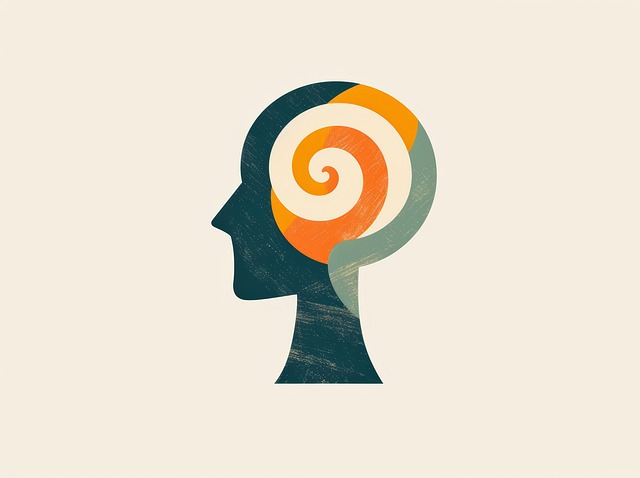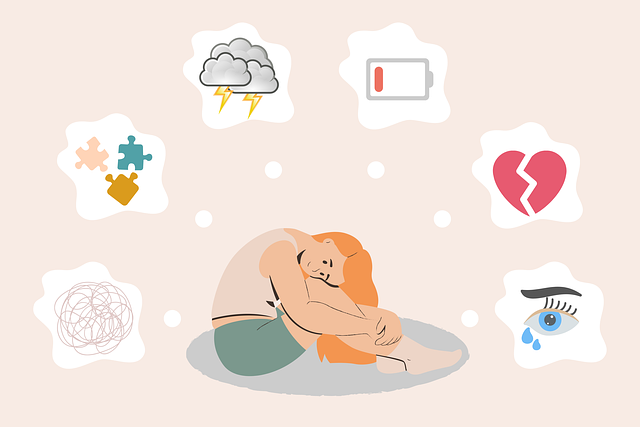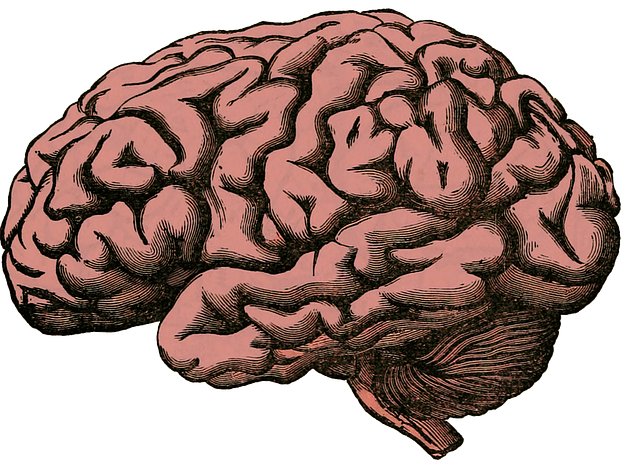Mental wellness is a dynamic aspect of overall well-being, influenced by early intervention, self-care practices, and healthcare provider support. Englewood Crisis Counseling Therapy promotes journaling as a powerful tool for self-reflection, healing, and personal growth. Creating a dedicated journaling space enhances mental resilience, while techniques like free-writing and guided visualization facilitate emotional release. Consistently tracking progress in your journal helps understand patterns, measure growth, and celebrate achievements, serving as a valuable record for both personal reflection and professional coaching.
Unwind your mind and embark on a journey of self-discovery with mental wellness journaling. In today’s fast-paced world, prioritizing our psychological well-being is more crucial than ever. This comprehensive guide, inspired by the experts at Englewood Crisis Counseling Therapy, explores the transformative power of journaling for emotional healing and personal growth. From understanding mental wellness to diverse journaling techniques, we’ll navigate strategies that foster self-reflection and help you thrive.
- Understanding Mental Wellness and Its Impact on Daily Life
- The Power of Journaling for Self-Reflection and Healing
- Setting Up Your Journaling Space: A Guide to Creating a Safe Haven
- Exploring Different Journaling Techniques for Emotional Release
- Tracking Progress and Celebrating Small Wins: Using Your Journal as a Tool for Growth
Understanding Mental Wellness and Its Impact on Daily Life

Mental wellness is a vital aspect of overall health and well-being, encompassing our emotional, psychological, and social state. It affects how we think, feel, and act in daily life, impacting our ability to cope with stress, make choices, and relate to others. Understanding mental wellness involves recognizing its dynamic nature; what constitutes good mental health can vary from person to person and change over time.
Englewood Crisis Counseling Therapy emphasizes the importance of addressing mental health concerns early on to prevent them from escalating. In today’s fast-paced world, where stress and anxiety are prevalent, practicing self-care and monitoring one’s mental wellness is crucial. This involves being mindful of thoughts and emotions, engaging in activities that promote relaxation and joy, and seeking support when needed. Effective risk management planning for mental health professionals, coupled with healthcare provider cultural competency training, ensures a holistic approach to supporting individuals’ mental wellness journeys.
The Power of Journaling for Self-Reflection and Healing

Englewood Crisis Counseling Therapy recognizes the profound impact of journaling as a powerful tool for self-reflection and healing. By committing thoughts and feelings to paper, individuals can gain valuable insights into their mental wellness journey. This practice allows for introspection, enabling one to explore emotions, identify patterns, and reflect on personal growth. Through regular expression, people can process traumatic experiences, reduce stress, and enhance overall well-being.
Journaling offers a safe space to be vulnerable, fostering self-acceptance and improving self-esteem. It encourages individuals to set goals, track progress, and celebrate achievements, all of which contribute to a positive mindset. Engaging in this activity can also facilitate the development of essential social skills by promoting empathy, emotional intelligence, and better communication—aspects that are crucial for building supportive relationships.
Setting Up Your Journaling Space: A Guide to Creating a Safe Haven

Creating a dedicated journaling space can significantly enhance your mental wellness journey. Consider setting up your area in a quiet corner of your home, free from distractions. A cozy chair or cushion, soft lighting, and perhaps a few personal touches like plants or meaningful trinkets can transform this spot into a safe haven for self-reflection. Think about making it a space where you feel comfortable opening up and expressing yourself honestly.
Englewood Crisis Counseling Therapy recommends keeping your journaling tools within easy reach to encourage consistent practice. Incorporate a mix of writing prompts tailored to various aspects of mental health awareness, coping skills development, and self-awareness exercises. With a thoughtful setup, your journaling space becomes a powerful tool for nurturing your mind, offering a sense of calm amidst life’s challenges.
Exploring Different Journaling Techniques for Emotional Release

Journaling is a powerful tool for emotional release and self-exploration, offering a safe space to process and understand one’s feelings. At Englewood Crisis Counseling Therapy, we encourage clients to experiment with various journaling techniques to enhance their mental wellness journey. One effective method involves free-writing, where individuals set a timer and write continuously without censoring their thoughts. This technique helps break through mental blocks and allows for an unfiltered expression of emotions.
Additionally, guided visualization and creative journaling can be transformative. Visualizing peaceful scenes or imagining conversations with oneself can provide valuable insights. For instance, imagining a conversation with your inner strength can foster self-compassion and motivation. Engaging in these diverse practices not only supports emotional release but also contributes to the overall development of inner strength and burnout prevention strategies for healthcare providers, as recommended by their healthcare provider cultural competency training.
Tracking Progress and Celebrating Small Wins: Using Your Journal as a Tool for Growth

As you consistently engage in mental wellness journaling, tracking your progress becomes an integral part of the process. Reflecting on past entries allows you to identify patterns, measure growth, and celebrate small victories along your journey. Every time you overcome a challenge or achieve a personal goal, take a moment to acknowledge it in your journal. This practice not only reinforces positive behaviors but also serves as a powerful motivator, encouraging you to strive for further improvement.
Englewood Crisis Counseling Therapy recommends using specific prompts like “What am I proud of this week?” or “What challenges did I face and how did I navigate them?” to prompt self-reflection. By documenting these milestones, your journal becomes a tangible representation of your mental wellness development, serving as an invaluable resource for both you and any Mental Wellness Coaching Programs Development professionals guiding your path. Moreover, it fosters empathy building strategies by helping you understand your emotional landscape better, which can be beneficial in various aspects of life, from enhancing relationships to improving overall well-being, much like the insights gained from listening to a compelling Mental Wellness Podcast Series Production.
Mental wellness journaling is a powerful tool for self-discovery, healing, and growth. By regularly engaging in this practice, you can better understand your thoughts and emotions, fostering improved mental health. As discussed in this guide, setting up a dedicated journaling space, exploring various techniques, and tracking your progress are all essential steps to make the most of this activity. Remember, just as Englewood Crisis Counseling Therapy provides professional support for those facing challenges, journaling can serve as your personal sanctuary for reflection and positive change. Embrace this journey towards better mental wellness and continue to explore the transformative power of self-expression.














